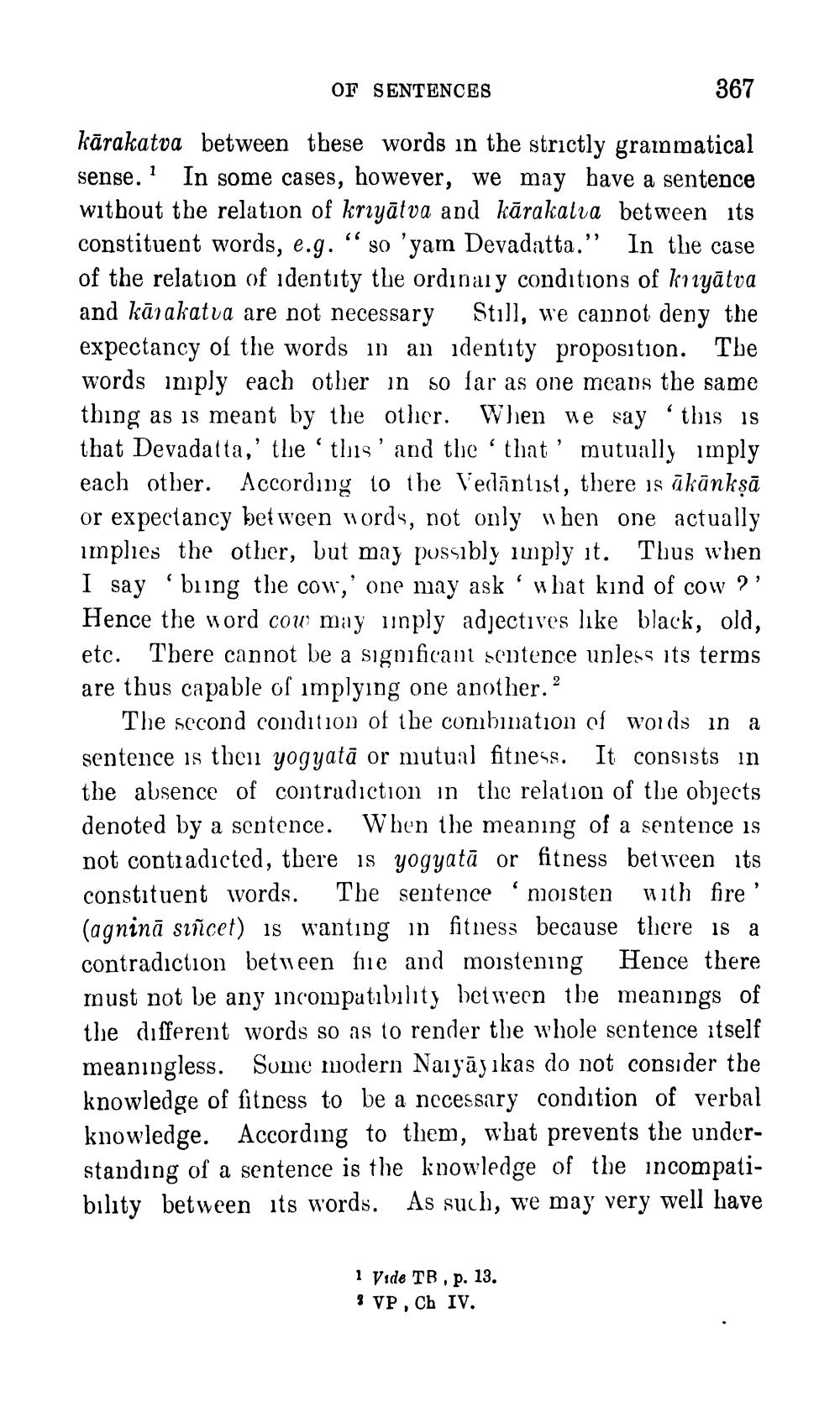________________
OF SENTENCES
367
1
66
kārakatva between these words in the strictly grammatical sense. In some cases, however, we may have a sentence without the relation of kriyātva and kārakatva between its constituent words, e.g. so 'yam Devadatta." In the case of the relation of identity the ordinary conditions of knyatva and karakatva are not necessary Still, we cannot deny the expectancy of the words in an identity proposition. The words imply each other in so far as one means the same thing as is meant by the other. When we say 'this is that Devadatta,' the 'this' and the that' mutually imply each other. According to the Vedantist, there is ākānkṣā or expectancy between words, not only when one actually implies the other, but may possibly imply it. Thus when I say 'bing the cow,' one may ask what kind of cow ?' Hence the word cow may imply adjectives like black, old, etc. There cannot be a significant sentence unless its terms are thus capable of implying one another.2
6
The second condition of the combination of words in a sentence is then yogyata or mutual fitness. It consists in the absence of contradiction in the relation of the objects denoted by a sentence. When the meaning of a sentence is not contradicted, there is yogyatā or fitness between its constituent words. The sentence moisten with fire' (agnina siñcet) is wanting in fitness because there is a contradiction between fie and moistening Hence there must not be any incompatibility between the meanings of the different words so as to render the whole sentence itself meaningless. Some modern Naiyay ikas do not consider the knowledge of fitness to be a necessary condition of verbal knowledge. According to them, what prevents the understanding of a sentence is the knowledge of the incompatibility between its words. As such, we may very well have
1 Vide TB, p. 13.
VP, Ch IV.




